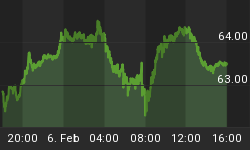Last week, the Fed kept the monetary policy unchanged, but might reduce quantitative easing 3 (QE3) sometimes this year. In reality, investors are focusing on Cyprus, where another chapter of the euro zone history is unfolding. EURUS is leaning on key support lines. A rebound to 1.31/1.32 is possible short term.
Cyprus is on the brink of collapse
In Europe, the small island nation of Cyprus is under the lens as the local parliament has rejected a tax on bank deposits to fund part of the rescue plan proposed by the ECB. Consultations are underway with the Russian government to bail out the insolvent banking sector. No decision has been taken so far, and the troika (ECB, EC, and IMF) is expected to mediate the bailout. The island's financial institutions will remain at risk until a solution is negotiated. Next week, the Cypriot parliament will probably be obliged to ask larger deposit owners to fund part of the bailout. Otherwise, the ECB will retrieve any help for the banks, and Cyprus will face an economic meltdown with a possible withdrawal from the euro zone.
The Euro Group's decision to ask for a bailout contribution by taxing deposits should remain an isolated case within the euro zone, and a breakdown of the Cypriot banking system should have only limited effects on the global markets. However, a tax on deposits would create a precedent that would undermine confidence in the safety of European financial institutions. In the future, European citizens will retrieve their money much faster in the face of a financial crisis. In addition, the EU, and Germany, in particular, can be blamed for failures in the peripheral countries, making it quite impossible for the creation of a more centralized European Union.
The Federal Reserve keeps monetary policy unchanged for now
In the US, the Federal Reserve is happy about the improvements in the job market and expects progress to continue. During last week's meeting, Chairman Bernanke confirmed that current monetary policy will remain in place until the unemployment rate falls below 6.5% or inflationary trends rise above 2.5%. Nonetheless, a decrease of QE3 is possible this year if the unemployment rate continues to decline at a steady peace. In the meantime, Congress has passed a resolution to keep federal offices open until the end of the actual fiscal year. The next appointment will be May 19th. At that time, the federal debt ceiling, which was suspended in January 2013, will be reintegrated. Congress now has about two months to choose a new debt ceiling. Otherwise, the previous limit will be automatically reinstated.
The US dollar should stay supported for the short-term, and the US dollar index could rise to 84.00/85.00. Nonetheless, according to the latest Commitment of Traders report, futures funds have already bought about 60,000 contracts, which represents a near record high. As a result, any dollar increase should be limited in time. In effect, seasonally, the US dollar tends to be strong during the first six months of the year and then declines toward year-end. The EUR/USD could rebound to 1.31/1.32 in the short/term. The market is leaning on various support lines, and there is a strong divergence between the current price and the RSI indicator. A dramatic development in Cyprus will instead take the European currency to 1.26.















